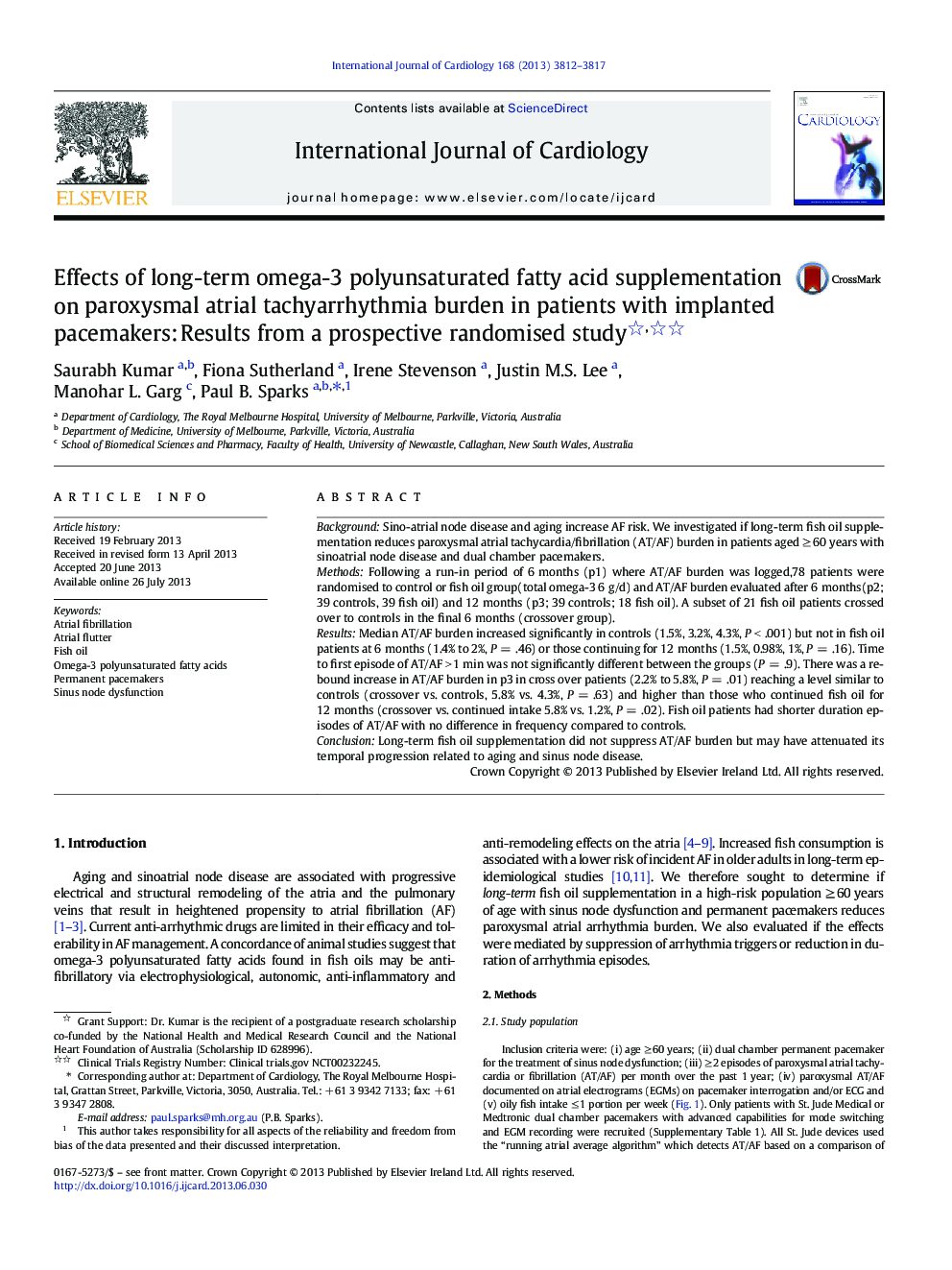| Article ID | Journal | Published Year | Pages | File Type |
|---|---|---|---|---|
| 5973919 | International Journal of Cardiology | 2013 | 6 Pages |
BackgroundSino-atrial node disease and aging increase AF risk. We investigated if long-term fish oil supplementation reduces paroxysmal atrial tachycardia/fibrillation (AT/AF) burden in patients aged â¥Â 60 years with sinoatrial node disease and dual chamber pacemakers.MethodsFollowing a run-in period of 6 months (p1) where AT/AF burden was logged,78 patients were randomised to control or fish oil group(total omega-3 6 g/d) and AT/AF burden evaluated after 6 months(p2; 39 controls, 39 fish oil) and 12 months (p3; 39 controls; 18 fish oil). A subset of 21 fish oil patients crossed over to controls in the final 6 months (crossover group).ResultsMedian AT/AF burden increased significantly in controls (1.5%, 3.2%, 4.3%, P < .001) but not in fish oil patients at 6 months (1.4% to 2%, P = .46) or those continuing for 12 months (1.5%, 0.98%, 1%, P = .16). Time to first episode of AT/AF > 1 min was not significantly different between the groups (P = .9). There was a rebound increase in AT/AF burden in p3 in cross over patients (2.2% to 5.8%, P = .01) reaching a level similar to controls (crossover vs. controls, 5.8% vs. 4.3%, P = .63) and higher than those who continued fish oil for 12 months (crossover vs. continued intake 5.8% vs. 1.2%, P = .02). Fish oil patients had shorter duration episodes of AT/AF with no difference in frequency compared to controls.ConclusionLong-term fish oil supplementation did not suppress AT/AF burden but may have attenuated its temporal progression related to aging and sinus node disease.
